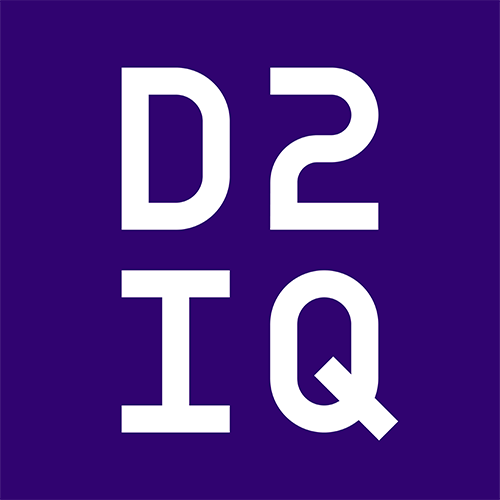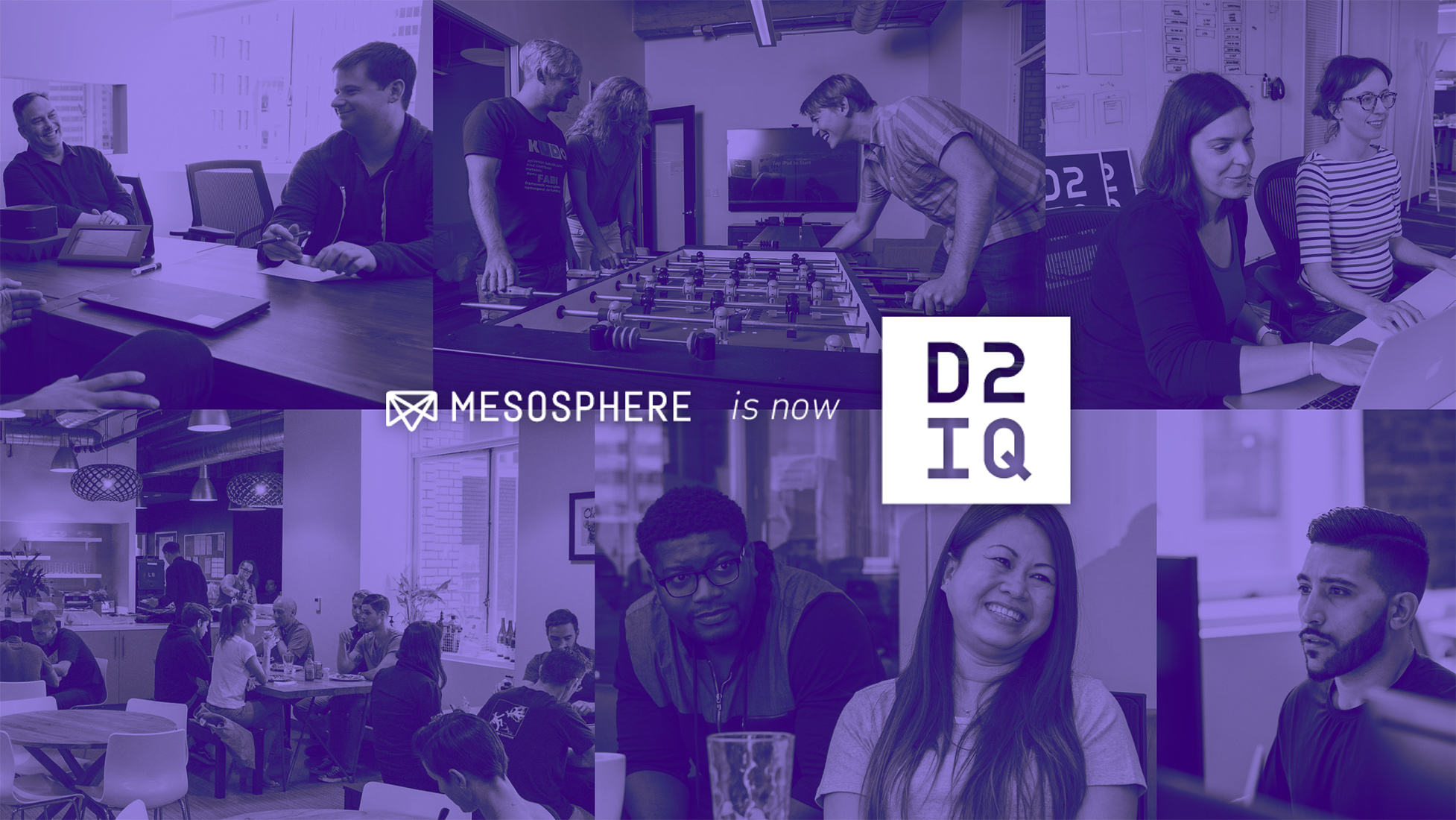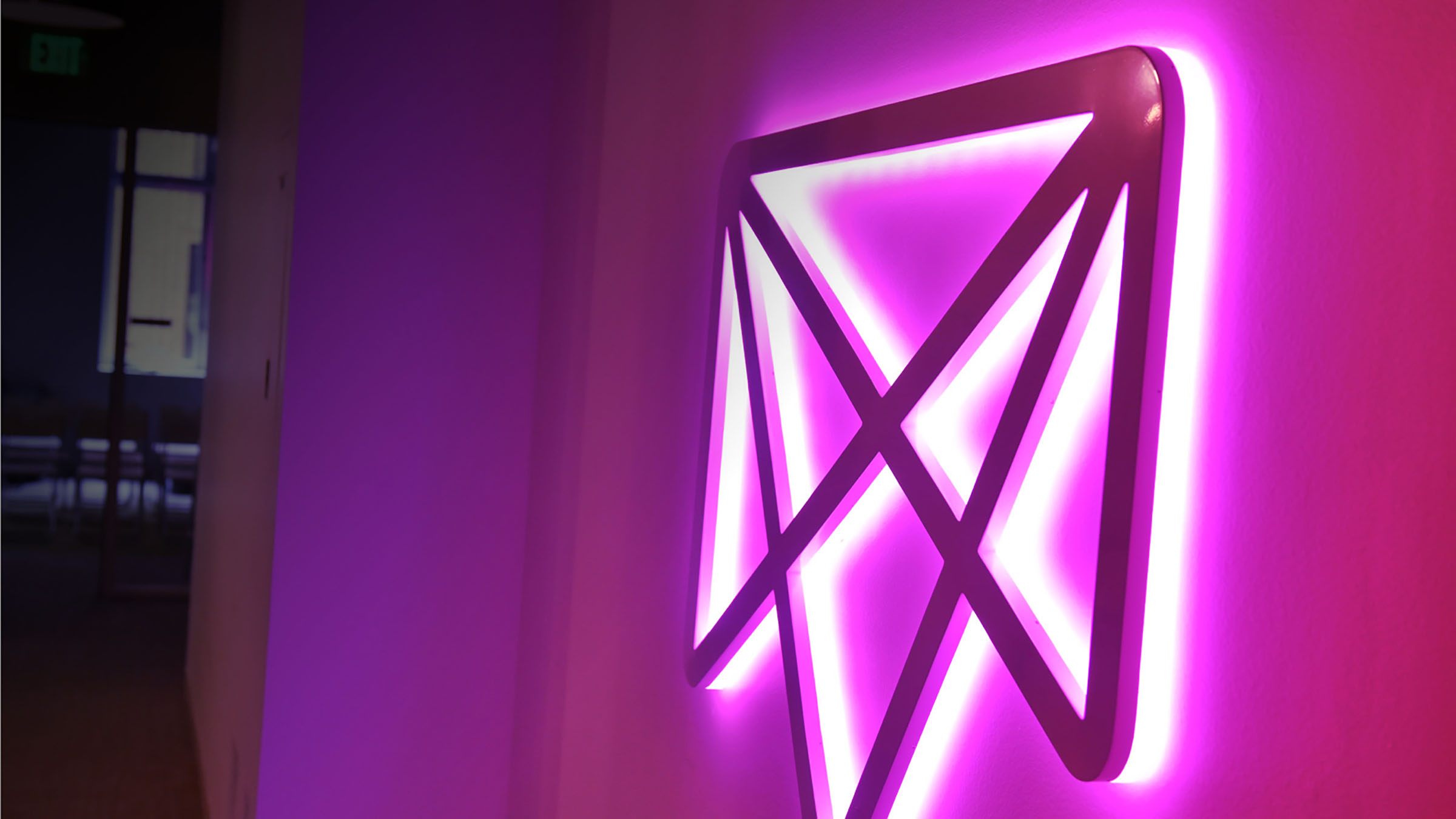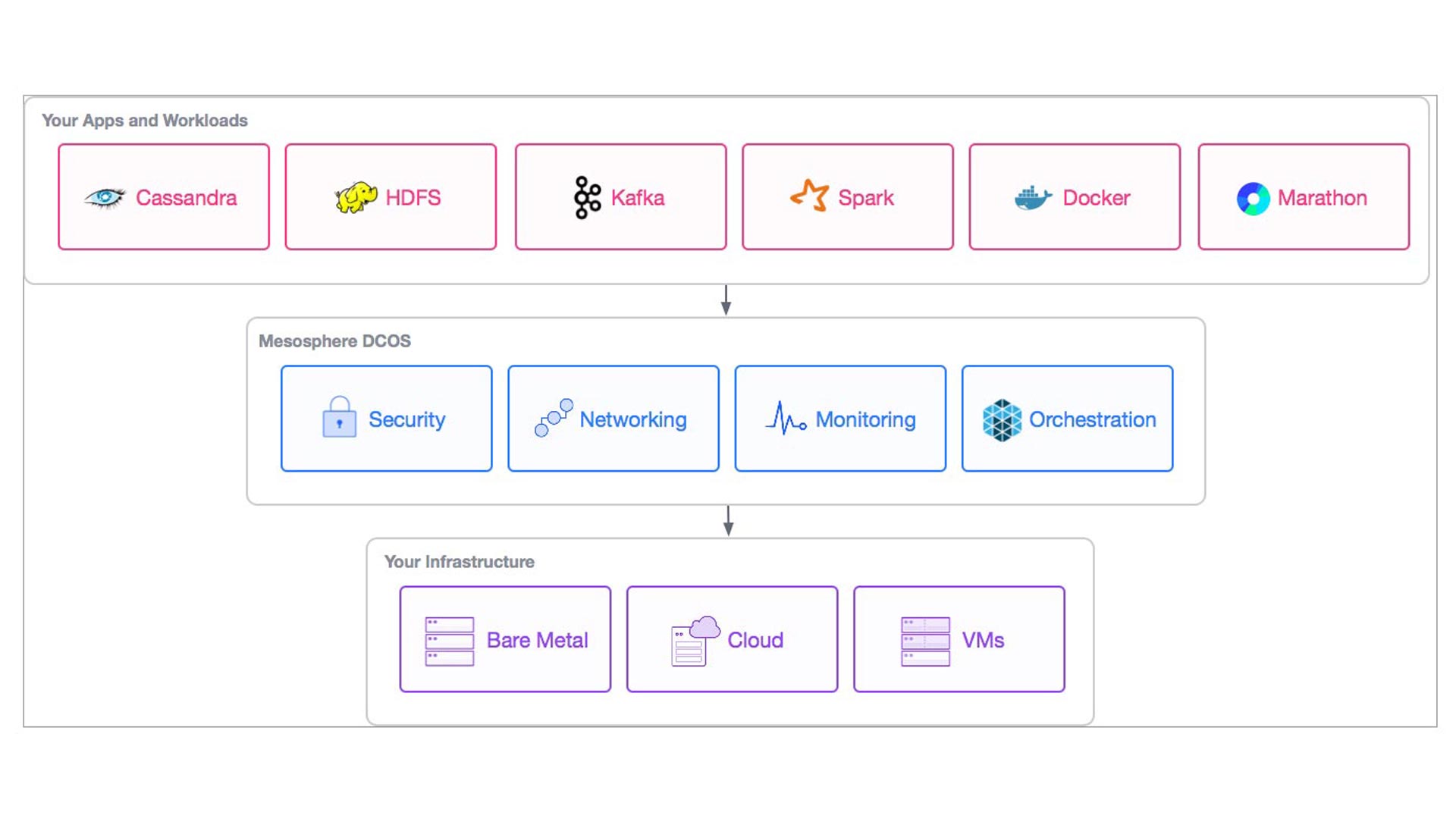
6 min read
Today, Mesosphere announced that we closed a $73.5 million Series C round of financing driven by important strategic partners, including Microsoft and Hewlett Packard Enterprise (HPE). This brings Mesosphere's total funding to nearly $126 million and supports our accelerating growth as DCOS becomes the de facto standard for building, deploying and running containers and distributed systems in production. Also participating in this round are previous Mesosphere investors Andreessen Horowitz, Khosla Ventures and Fuel Capital, as well as new investors A Capital and Triangle Peak Partners.
Today we also announced version 1.0 of Marathon, the production-grade container orchestration service for our Datacenter Operating System (DCOS), and an entirely new product called Velocity. These announcements reveal the completeness of our technology and product vision.
We began our journey in 2015 by launching DCOS, the world's first and only datacenter-scale operating system. But we did not stop there. We know very well that operating systems are only as good as their "killer applications" (or, in the case of DCOS, "killer services"), so we built those too:
- Marathon: The most popular production-grade container orchestration system, which is a standard part of the DCOS.
- Velocity: The newly launched developer agility and CI/CD platform for the DCOS, which leverages open source tools like Jenkins to make it possible for development teams to go from source code to production with ease and speed.
- Infinity: Our previously launched big data and real-time analytics platform, which harnesses open source services such as Spark, Cassandra and Kafka so enterprises can easily build world-class analytics into their businesses.
From our perspective, all of these things are related: Enterprises are demanding highly-automated cloud architectures and the modern applications that run on them, so they'll need a suite of technologies specifically designed to enable this new era of computing in production and at scale. Our technology, backed by support from strategic partners, is the best way to help them get there.
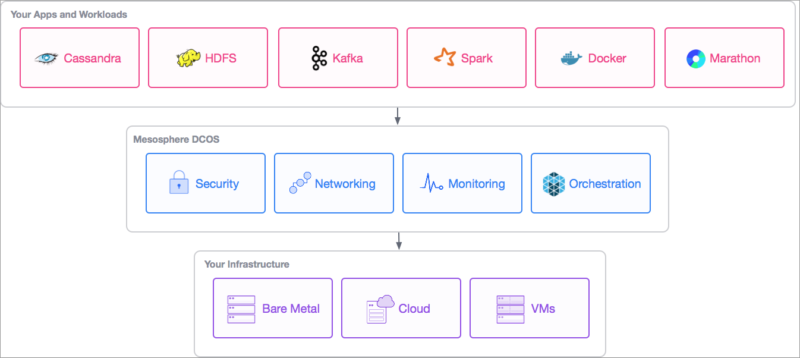
Delivering the future with HPE and Microsoft
We'll get to the technology shortly, but first let's talk about our new strategic investors: HPE and Microsoft.
HPE led this investment round, which should not be surprising considering the company's past, present and future status as an innovator and leader in enterprise IT. HPE is the leading global provider of datacenter infrastructure, including servers, storage, networking, converged systems, and related software and services. We're honored that HPE recognizes Mesosphere's lead in the market and the endless possibilities that arise from combining our DCOS technology with its industry-leading infrastructure technologies. We think the DCOS offers a newer, better, open and, most importantly, proven option for HPE customers to quench their thirst for private cloud, big data and container operations on a single, simple platform.
Our partnership with Microsoft began in 2015 with our collaboration to bring the DCOS to Microsoft Azure, well before the company became an investor in Mesosphere. It's a great example of how the DCOS can empower both startups and enterprises to reshape IT operations for decades to come. Microsoft is the leading cloud provider to large enterprises, and Mesosphere is an expert at simplifying the deployment and operation of distributed systems (including application containers and big data systems), and at improving the availability of any application or service running on the DCOS. We're proud to be able to leverage Microsoft's expertise in building and operating massive cloud platforms, and providing high-value infrastructure, applications and services.
Together, we are delivering a whole that's greater than the sum of its parts—a truly open, portable and scalable platform for running modern applications. We have already brought the power of open source DCOS components (including Apache Mesos and Marathon) to cloud users via the Azure Container Service, and we're making our technology available not just on Linux but also on Windows Server by working with Microsoft to support Mesos on Windows. And, of course, DCOS provides a portable user experience by running on top of Azure cloud machines the same way it runs on top of bare metal or virtual machines inside a private datacenter.
Companies including Apple, Verizon, Twitter, Samsung, Yelp, Bloomberg, Netflix, Autodesk, Mattermark, Orbitz, eBay, Uber and more are already running important parts of their businesses on the DCOS or the open source technologies that comprise it. Most are also incorporating the growing list of ecosystem technologies that the DCOS supports—from Docker to Hadoop. As the DCOS continues to expand its reach and feature set, it's becoming the de facto platform for managing resources and running applications within forward-thinking companies.
Going forward, we expect our relationships with HPE and Microsoft to pay huge dividends for all of the companies involved—us, them and the customers that trust us. Everyone shares common goals around making IT more efficient, more scalable and more simple to operate. We all believe IT should be more open, more portable and more adaptable to evolving requirements. Combined with underlying infrastructure and cloud services from HPE and Microsoft, the DCOS is an ideal platform to deliver on these goals wherever customers want to run and whatever types of applications they want to build.
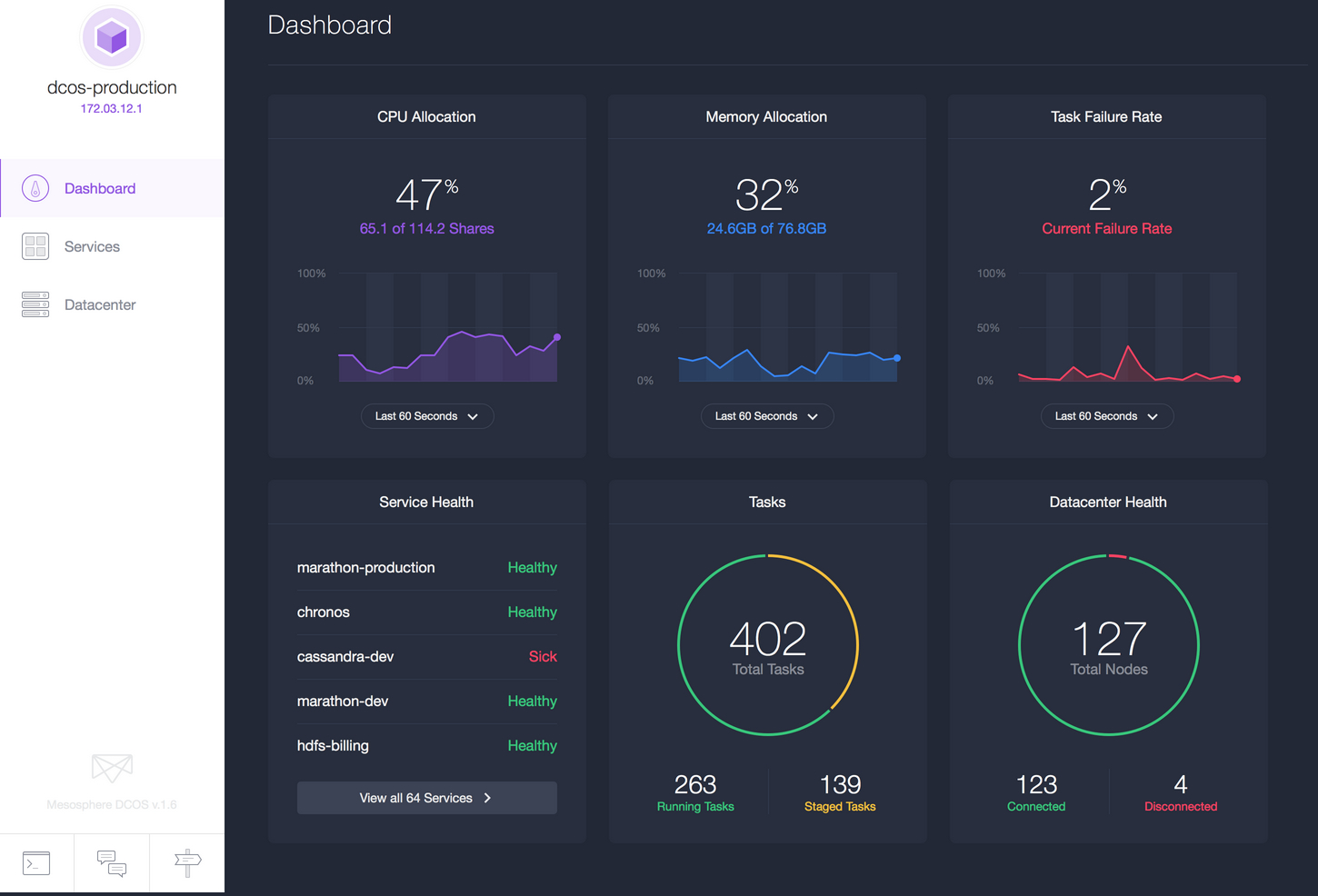
Containers in production with Marathon
Application containers managed by our open source Marathon technology are and will remain a major component of the goals outlined above. Some of the biggest and most innovative companies in the world are already operating production container environments on top of a Mesos+Marathon platform. Yelp's operation is particularly impressive, including a Marathon-based (and open source) platform-as-a-service system called PaaSTA. Marathon is the most flexible service for container orchestration: In addition to orchestrating Docker containers, Marathon also supports other container formats, such as Linux cgroups (this is the default option in DCOS), and will also support any standard put forth by the Open Container Initiative (OCI).
Marathon 1.0, which we also announced today, represents a major step forward in the world of container orchestration. Marathon has been an open source project for over three years and supports some of the largest production container environments in the world. Today, it turns 1.0 because of how far the technology has come. We congratulate the Marathon team at Mesosphere for major improvements in stability, scalability and usability, as well as maintaining an every-4-week release cycle that ensures a steady stream of technological improvements and fixes.
Important features added to Marathon in the past year include:
- Application groups: Users can organize containers into "pods" of related components. For example, you can group together your microservice and its backing database, and control their lifecycle and scaling as a single unit.
- Application dependencies: Users can explicitly declare the relationships between application components, and Marathon will ensure they're started in the correct order and that an invalid deployment is never allowed.
- Rolling upgrades (for zero downtime): Users can control exactly how they'd like Marathon to roll out upgrades to their applications and services, using progressive rollouts, health checks, and rollbacks to ensure zero downtime and high availability.
- IP per container: Marathon helps users escape port management hell by giving every container its own IP address.
- Network isolation groups: Marathon ensures that only permitted services can see one another on the network. One great benefit of this feature is that configuration errors in one group can do no damage elsewhere.
- Extensible plugin system: Marathon is highly extensible with a rich plugin API. Need Marathon to do something differently? Write your own extension.
New features in the 1.0 release include:
- Fine-grained authorization and multi-tenancy: Marathon on DCOS Enterprise Edition now includes fine-grained authorization and access control. Developers can log into a single Marathon and only see their own applications. This eliminates the complexity of managing many Marathons for different purposes.
- Stateful services: Marathon can now bind storage volumes to applications, so you can run stateful services, such as databases like MySQL and Postgres, with Marathon and have storage accounted for by Mesos and DCOS.
- Virtual IP addresses: Marathon running on DCOS can now take advantage of Virtual IPs. Every app can have its own IP: a dedicated, virtual address that other apps can connect to. No more service discovery lookups! Sophisticated DCOS networking ensures that your inbound traffic is not only load balanced, but rerouted in the event of node loss.
(Note: The storage-volume feature for stateful services requires upgrading to Apache Mesos 0.28. Fine-grained authorization and virtual IP addresses will be available shortly with the DCOS 1.7 release.)
In the months to come, the Marathon team will be delivering on an aggressive roadmap that will provide Marathon with a feature list that expands upon its production-grade reputation. These include some advanced and much-requested capabilities around auto-scaling, privacy, developer tools, networking and availability.
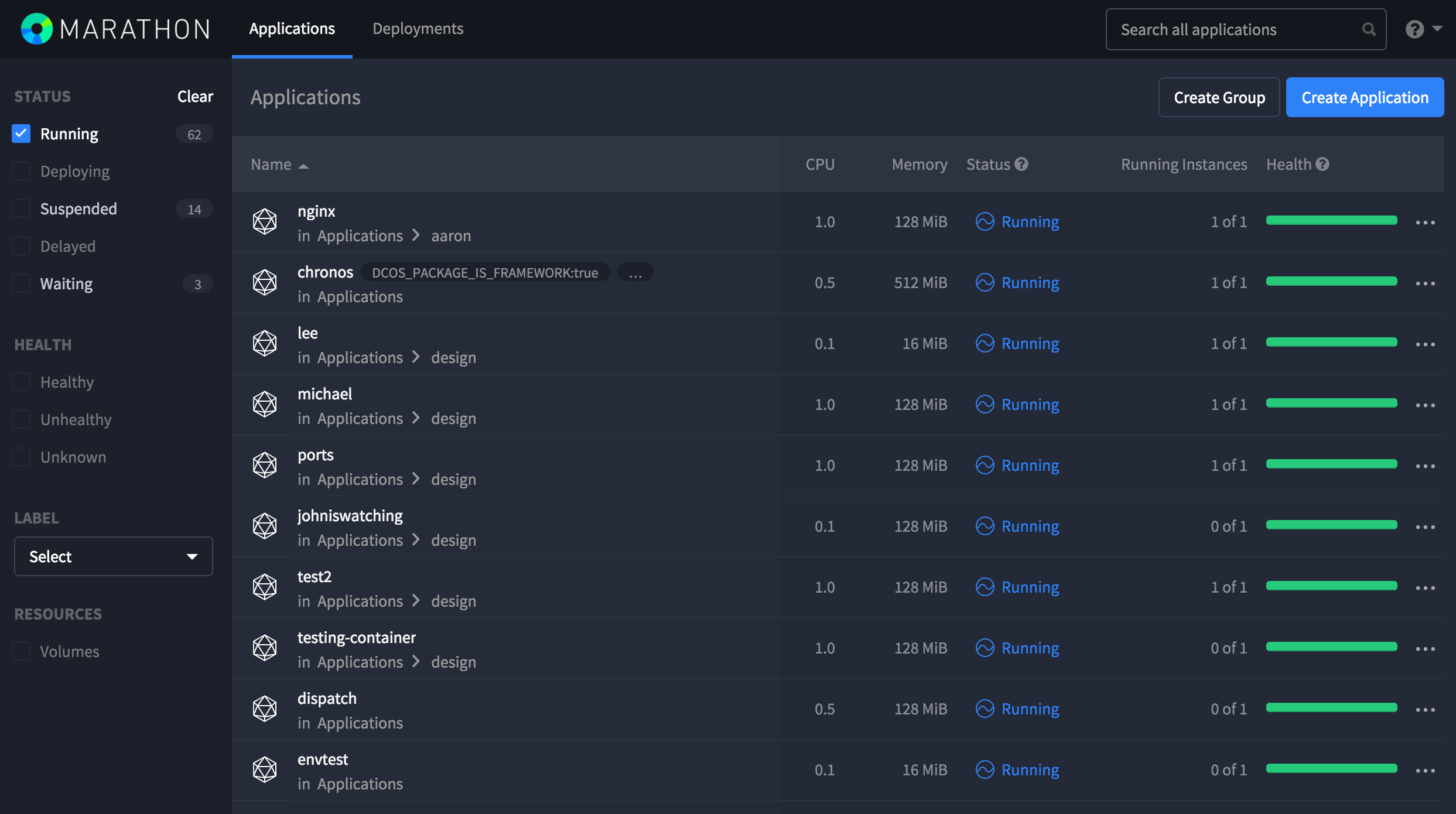
The new world of container operations
Enterprises need end-to-end solutions for running containers in production, a set of processes and technologies we call container operations. While there is a lot of buzz around a subset of operations—namely, container orchestration—orchestration is just one piece of the puzzle when it comes to running containers in production. Our answer to orchestration is Marathon, and Marathon is just a part of this larger system we call the DCOS.
Mesosphere's DCOS was built to reinvent datacenter operations. The DCOS provides the shared, scalable, highly available, simple, and flexible infrastructure on which Marathon and many other systems (including popular big data ones) run.
Another piece of the puzzle is managing the entire application development lifecycle. Companies quickly realize that in order to achieve the benefits promised by containers and microservices, they need to evolve their application development process by introducing continuous integration and continuous deployment (CI/CD) tools and processes. CI/CD lets companies steadily improve their applications by letting developers continuously push code for testing, review and live deployment, with varying levels of approvals and checks along the way. However, building a CI/CD environment is not for the faint of heart—especially as teams and codebases grow, and the pace of development picks up.

Developer agility with Velocity
Our new Velocity product rewrites the story on CI/CD and the entire process of taking code from Git to production. Velocity builds on the lessons learned by pioneering Mesos users—including eBay, Samsung and Yelp—who built highly scalable CI/CD systems using the industry standard Jenkins technology as a foundational component. Many of these early users also standardized on Docker containers and integrated Jenkins with Marathon in order provide a natural path to production deployment.
The first version of Velocity, for which you can sign up for early access today, is a customized, scalable and highly available version of Jenkins that runs on the DCOS. Velocity allows organizations to integrate with their existing source-code management systems, and also directly integrates with Marathon providing for completely automated application rollouts. Future versions of Velocity will take users even further on the CI/CD journey, offering a fully integrated experience that encompasses code management, source control and code-testing tools.
Whether you package your applications with Docker or use established packaging systems like Java JAR files, our goal is to make Velocity the simplest and fastest way to get started with CI/CD, and the surest way to help your developers stay agile as your team and demands scale.
We are launching Velocity with support from partners such as JFrog, GitHub and Container Solutions. Containers Solutions is an Amsterdam-based consultancy specializing in container deployments. JFrog is creator of the market-leading container and code repository manager Artifactory. GitHub, of course, is the provider of the popular Git repository, which can be hosted locally or in the cloud.
Today is no doubt a huge day for Mesosphere, but it's more like a kickoff than a culmination. Our Datacenter Operating System is an awesome piece of technology, but there is a lot of work left to make it as powerful as possible, get it into as many datacenters as possible and ultimately remake enterprise IT. Velocity, Marathon 1.0, and our strategic investment from HPE and Microsoft will certainly help us deliver on that goal, but they are still early steps in the DCOS journey.
Get ready for an exciting year and some amazing new DCOS capabilities. We are just getting started!
Visit the following pages to:






